|
Classics |
 Bill Bryce Bill Bryce
My experiences with Kentucky Classics and the Institute for Latin Studies have rewarded me personally and professionally. My professors there challenged me to be thoughtful in my study of Latin and Greek, to place texts in the context of the cultures that write them, and to heed the nuances afforded by the authors' dialects. From active practice of spoken Latin, I became more attuned than ever to the structure and patterns in an otherwise "free" word order, and my confidence in translating Classical and Ecclesiastical Latin grew exponentially. In speaking Latin, I also developed personally, experiencing the fear, then the growth, then the satisfaction in communicating with my fellow students and professors - not to mention with the worldwide active Latin community - in a language which none of us could call our native tongue. I met a native Italian speaker around town who spoke no English, and I no Italian, so we communicated in Latin! So cool. Similar experiences happen to those who participate in the Conventicula Latina, when Classics enthusiasts from all over the world come to Kentucky to speak Latin with one another.
For five years I was an Instructor of Classics at Virginia Tech, where I fostered a love of ancient languages and their active use among my students. Currently I am working on my PhD in Computational Linguistics at the University of Illinois, where I pursue new ways to find the structure of the languages found in various corpora. I have continued to work as a teacher of Latin as well as of English as a Second Language, both positions I earned because of my experiences speaking Latin actively in Kentucky. I remember fondly the people of Kentucky Classics and my experiences there, and they continue to shape my life today.
|
 Reed DeMarco Reed DeMarco
Upon graduating with an MA in Classics from the University of Kentucky, Reed DeMarco has been teaching Latin and Ancient Greek at Brother Rice High School in Bloomfield Hills, MI, since 2010. He studied both Latin and Ancient Greek during his graduate work as a Teaching Assistant from 2007-2009, where at least one of his students even went on to become a Latin teacher also. In addition, Reed earned a certificate in Active Latin from the UK Institute for Latin Studies. This meaningful venture allowed him to gain oral Latin proficiency, not only to enrich his relationship with the language, but also to adopt pedagogy not dissimilar to other World Languages. Reed enjoys the life-long learning opportunities to which he has gained access since his time at UK, as well as joining such a flourishing community of learners and educators through his graduate work and Conventicula Latina.
Since December 2013, Reed has been the proud husband to wife Jamie, and since May 2015, proud father to daughter Emily Monica. Aside from enjoying his time raising a family, Reed enjoys reading, spending time with friends and family, and all things outdoors, especially golfing, fishing and hunting.
|
 Tyler Denton Tyler Denton
Tyler Denton, a native of Tennessee, got his bachelor's degree from the University of Tennessee. While he was pursuing a course of study in history, he met with and fell in love with the Latin language, and the rest, so to speak, is history. He eventually graduated with concentrations in Latin, Classical Civilizations, Medieval Studies, and History and a minor in Greek. There he studied a wide, perhaps even dizzying, range of time periods and genres both in Latin and Greek, ranging from the archaic Lesbian poets to the late Medieval scholastics, but he was particularly drawn to the works and afterlife of Rome's vates summus, Virgil. He capped his time at UT with an unofficial senior thesis as part of a year long graduate-level course on Medieval paleography in which he wrote about the Italian Renaissance reception of Tiberius Claudius Donatus, a Late Antique Vergilian commentator.
Tyler then continued his education at the University of Kentucky, where he continued to expand his knowledge of Greek and Latin. He also began the extremely challenging but equally rewarding mission of learning Latin as a living language in UK's Institutum Studiis Latinis Provehendis. During this course of study, he came in contact with even more Latin and Greek authors, especially some of Virgil's later admirers, including Petrarch, Poliziano, and Girolamo Fracastoro. He also developed an active interest in the interplay between history and poetry, a focus that greatly impacts his current studies, especially between Livy and contemporary Augustan poets. Outside of his personal reading and research, Tyler witnessed the nascence of his love for teaching when he taught a pair of Latin courses at UK. From this experience, he certainly recognizes the importance of being both a scholar and a teacher.
After he graduated with an MA in Classics from UK, Tyler began working towards his PhD at the University of Colorado in Boulder, where, amidst gazing at the Rocky Mountains sitting imposingly on the outskirts of town, he is working on finishing coursework and passing his final preliminary exams before starting on the dissertation. He looks forward to teaching Greek for the first time in an online format in the Summer of 2016 and is currently enjoying teaching Latin. |
 Nathan Freeman Nathan Freeman
In the past bit of time, Nathan Freeman (MA Classics, 2010; MA German 2011) has had quite the honor of being able to teach Latin seminars and classes on three continents: the two Americas, and Europe. Remaining true to the active method has allowed him to teach in locations where he did not have complete mastery of the national language (Brazil and France, for example). At the seminary “Bon Pastor” in France, in addition to active Latin, he also taught a beginning Hebrew course in Latin, which perhaps has not happened in that past century or two on the European continent. Addionally, within a year or two, and with help from other Latinists (commilitones), he hopes to co-found Latin Academies, where the natural method will be used, both in Europe and in South America. In the midst of this he has authored three books, availiable at Amazon: Tractatus de Societate, The Third Book of Aphorisms and The Winter Poems (available soon).
|
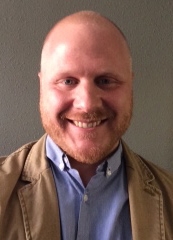 Tim Griffith Tim Griffith
Tim Griffith has been a Fellow of Classical Languages at New Saint Andrews College in Idaho since 2007. In the spirit of his teachers at The Institute for Latin Studies, he employs a mixed Latin pedagogy, making use of Latin as a real living language while maintaining a heavy emphasis on grammar, readings, and composition. He is proud to have had two of his own students go on to complete the Institute and an M. A. in Classics at UK. He is the founder and director of the Phaedrus Latin Contest, an annual National competition in writing Latin fables for high school students.
One of his greatest research interests is Latin pedagogy, where he has developed various visual aids to make teaching Latin grammar and vocabulary more effective. In 2012 he published Orbis Pictus, a systematic visual introduction to vocabulary of the natural world. In 2016 he plans to publish Vocabula Picta, an online Latin vocabulary tool designed to aid students of Latin and keyed to popular Latin textbooks. Also, he is currently a Doctoral Candidate in Classics at the University of Florida and expects to complete his dissertation on Lactantius’ De Ira Dei in 2017.
|
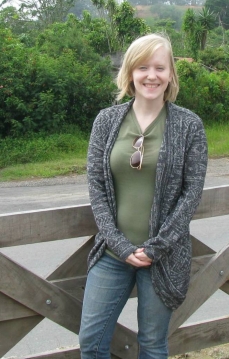 Lisa Jagoda Lisa Jagoda
Lisa Jagoda began her undergraduate studies at the University of Kentucky in 2008 with majors in classics and anthropology, and immediately began studying Greek under the instruction of Dr. Amy Clark. After a few semesters, she began studying Latin in an intensive accelerated course taught by Dr. Jane Phillips. By her third year of study, Lisa was taking reading courses in both Latin and Greek every semester and thoroughly enjoying delving deeper into the grammar, syntax, and literary interpretation of authors such as Cicero, Plato, Ovid, and Virgil. During an advising appointment, Dr. Hubert Martin recommended that she apply to the University Scholars Program, which allows qualified undergraduate students to begin graduate-level studies during their senior year while earning credits that count toward both a bachelor’s and master’s degree. Lisa applied to this program and was accepted, thus completing her bachelor’s degrees in anthropology and classics (and also managing to complete a Spanish minor) in 2012 and her master’s degree in classics in 2013. Highlights from her time as a student at the University of Kentucky include presenting a paper at an undergraduate classics conference, winning both the departmental Latin and Greek undergraduate awards, and getting to know her professors and classmates in small and highly participatory class settings.
After graduation, Lisa moved to Athens (the college town in Georgia, not the capital of Greece, unfortunately) and after several months, began working at the University of Georgia as an academic advisor. She currently advises math students, and although she doesn’t use Latin or Greek on a daily basis, the skills she learned and developed as a classics student, namely, organization, high attention to detail, and patience, are beneficial to both her and her students. She loves working with students in an academic environment and helping them to plan their futures and achieve their goals. Since beginning this career in 2014, Lisa has earned the Certificate in Academic Advising and the Diversity and Inclusion Certificate from the University of Georgia, and continues her professional and personal growth by attending conferences and workshops and by getting involved on campus and in the community.
|
 Miller Krause Miller Krause
Miller Krause earned his B.A. in Latin and Greek at the University of Virginia. He then taught at the secondary level for several years before he learned of the spoken Latin program at the University of Kentucky. Eager for the challenge of moving beyond the narrow confines of the traditional approach to classical languages, he left his old life behind and eagerly threw himself into graduate studies at Kentucky. Drs. Minkova and Tunberg showed him that a different kind of Latin than what he had encountered before: not a fossilized logic puzzle or codebook of the dead, but an eternally living conversation that intelligent men and women had been having for thousands of years, from antiquity to the present day.
With his M.A. in hand, he then undertook Ph.D. work at the University of Florida. There he began working on everything from ancient declamations to sixteenth and seventeenth century Latin histories of Virginia and Florida. His other research interests run the gamut from prose rhythm to paradoxical encomia, from Plato to Propertius to Plutacrius.
Miller now teaches at Western Washington University in Bellingham, Washington. He also researches innovative teaching methods for classical languages, including those in use in Africa in the 1970’s. He feels deeply committed to treating Latin as a language, and thus as something that must be spoken and written as well as read in the classroom. Furthermore, he believes in teaching the entire patrimony of Latin and Greek letters, including Byzantine literature on the one hand and medieval and Neo-Latin works on the other.
|
 Kelly Lawyer Kelly Lawyer
After graduating with an MA in Classical Studies and a graduate certificate the Institute of Latin Studies, I received a full scholarship to attend the Classical Summer School through the American Academy in Rome. This six-week program is designed to provide qualified graduate students, mature undergraduates, and middle school, high school, and two-year college teachers with a well-founded understanding of the growth and development of the city of Rome through a careful study of material remains and literary sources. My six weeks spent in Rome this past summer were some of the best, most exciting, and enriching of my life; the lectures, site visits, and conversations with my classmates and fellows at the academy deepened my knowledge in ways I never thought possible.
Through the program, I gained a better understanding of the Roman sites themselves, greater experience and knowledge handling ancient artifacts, how to excavate dig sites, and the opportunity to see parts of Rome that would not have been possible outside of this program. Currently, I am teaching an immersive Latin class to second and third graders, a Latin one class, an advanced Latin honors class, two English grammar classes, and two art history classes at Oak Hill Christian School in Reston, Virginia. My job affords me the opportunity to work with students of all ages and introduce them to Latin texts from ancient and modern sources and use the skills I gained as a teacher assistant, all thanks to the education I received through UK’s Classics program.
|
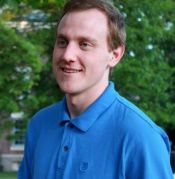 William Little William Little
William Little (B.A. Classics, Harvard University, M.A. Medieval Studies, Fordham University) graduated from the UK M.A. Program in Classics and the Institute of Latin Studies in 2013, and since then has been at work on his doctorate in the Ohio State University department of Greek and Latin. His interests center on the reception of the Latin classics in the Middle Ages and Renaissance, and in this vein he is currently working on projects pertaining to the rich medieval Latin commentary tradition on Ovid’s Metamorphoses. Over the summers he has had the opportunity to broaden his knowledge of the manuscripts and early printed books through which such commentaries have been transmitted through programs hosted by the Pontifical Institute of Mediaeval Studies in Toronto and the California Rare Book School, though he still credits above all the curriculum at the University of Kentucky with lending him a facility with Latin that is indispensable in such research.
|
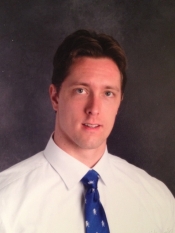 Sean McGrath Sean McGrath
I currently teach 6th, 7th, and 8th grade Latin at Cicero Preparatory Academy in Scottsdale, AZ, which is a new school within the network of Great Hearts Academies. We strive to provide a rigorous education in Latin grammar and literature using the textbook “Latin for the New Millennium.” Our approach, in addition to the traditional grammar method, involves using Latin orally in class, whether describing pictures in a powerpoint to review vocabulary, or to summarize and discuss readings. We also greatly emphasize the importance of English to Latin translation from the very beginning of the curriculum.
My studies at the University of Kentucky’s Living Latin Institute have given me an excellent formation to perform the duties of a Latin teacher at Cicero Prep. The unique scope of the program and the great support of the professors made my time in the Classics M.A. program thoroughly enjoyable and intellectually stimulating. As an avid Latinist, the ability to converse daily in Latin with Dr. Minkova and Dr. Tunberg was of immeasurable benefit both professionally and personally. I greatly enjoyed my time there and know that the two-year investment enabled me to develop a level of mastery of the Latin language which would be difficult to acquire anywhere else but in Europe. |
 Jonathan Meyer Jonathan Meyer
Jonathan Meyer (B.A., Calvin College; M.A.R. Bible, Yale University; M.A. Classics University of Kentucky) is currently a Ph.D. candidate in Classics at Johns Hopkins University. After earning a Master's degree from the University of Kentucky in 2012, Jonathan spent a year as a regular member at the American School of Classical Studies in Athens, Greece, where he studied the Latin travel diaries of Cyriac of Ancona. He also spent six months as a fellow at the Ludwig Boltzmann Institute for Neo-Latin Studies in Innsbruck, Austria, where he worked on neo-Latin novels written in the Habsburg empire. In the summer of 2015, he presented a paper as part of a panel on the neo-Latin "Habsburg novels" at the Sixteenth International Congress of the International Association for Neo-Latin Studies (IANLS) in Vienna, Austria. He has also been an instructor for the Paideia Institute's "Living Latin in Rome," a five-week summer Latin immersion experience for college and graduate students in Rome and its environs.
|
 Jennifer Nelson Jennifer Nelson
After completing concurrent master’s degrees in Classics and Library and Information Science at the University of Kentucky, I landed my dream job at the Robbins Collection, a research center for medieval and early modern religious and civil law located at the UC Berkeley School of Law. The best part about my job is that I am surrounded by rare books and manuscripts written primarily in Latin. I have learned—and continue to learn—a great deal about legal history, history of legal education, manuscripts, early printing, and paleography. I continue to be involved in Latin not just by being around our wonderful books, but also by teaching instruction sessions on cataloging rare Latin materials. In addition, I am currently working towards my doctoral degree through the University of Florida Classics department’s Distance Learning Program.
|
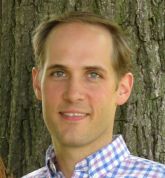 Patrick Owens Patrick Owens
After earning his Master’s degree from the University of Kentucky’s Institute of Neo-Latin Studies in 2009, Patrick M. Owens was offered a permanent position at Wyoming Catholic College in Lander, WY teaching Latin. After several years of teaching the upper-level and honors track of undergraduate courses in Latin and Latin literature, he decided to return to graduate school for his terminal degree. In 2015, Dr. Owens took his Ph.D. in Classical and Early Christian Literature from the Institute of Higher Latin Studies at the Salesianum (Università Pontificia Salesiana). Under the direction of Dr. Luigi Miraglia, Dr. Owens wrote his doctoral dissertation on the reception of Classical philosophical diction in Cardinal Poliniac’s Anti-Lucretius (1747).
Dr. Owens attributes much of his success to his time as a graduate student at UK, during which time he composed his Master’s thesis under Dr. Terence Tunberg on the Classical and Patristic sources in Thomas More’s Utopia. Since leaving UK Dr. Owens has taught undergraduate and graduate courses in philosophy and humanities at Touro University and courses in Latin and Latin literature at the Vivarium Novum in Rome. Dr. Owens’ recent work has focused on Latin literature and diction from Antiquity to the Early Modern Period. This research particularly fuels one of his projects, the Lexicon Morganianum, of which he is the editor-and-chief. Dr. Owens is also interested in Latin pedagogy and has edited many of the texts in the Lingua Latina per se Illustrata series, as well as published on trends in active Latin methodologies. He is on the board for the American Association for Neo-Latin Studies, and the National Association for the Promotion of Latin and Greek. He currently resides in Lander, Wyoming with his wife and children, where he teaches Latin, Roman Art History and Humanities at Wyoming Catholic College. Dr. Owens is a regular participant in the annual Conventiculum Lexintoniense. |
 RJ Parsons RJ Parsons
I am currently a Latin teacher at Saint Louis University High School in St. Louis, Missouri. After receiving my Master’s degree from the University of Kentucky, I was eager to use the knowledge and skills that I had acquired and to take them into my own classroom. I wanted then—as I do now—to share my passion for ancient authors like Cicero, Catullus, and Demosthenes as well as my love for the writings of such greats as Pontano, Petrarch and Erasmus. The unique course offerings at UK had allowed me to explore Latin literature from the Roman republic to the Renaissance. I feel equipped to bring that depth and passion into my classes because of my studies at the Institute for Latin Studies. In fact, I find that when I bring in the resources that I had gotten to know during my Master’s, my students can often relate better to the texts we explore. They even see many of these more recent authors as a bridge to understanding and enjoying ancient works.
In every class that I teach, I urge my students not merely to translate passages, but to ask questions of the authors. Why does s/he use this word or construction rather than that? What authors influenced the composition of these passages? How might you reword this selection? These were all skills I learned at UK, where students are encouraged to approach the languages and literature from a variety of angles and to form much more active—and therefore fulfilling—connections with the texts and language they study. Indeed, what I learned during my studies in the Institute for Latin Studies has completely transformed the way I teach and the enjoyment of it.
|
 Rachel Philbrick Rachel Philbrick
I am currently a fifth-year doctoral candidate in the Department of Classics at Brown University. I completed UK's MA program in Classics in 2011, and the work I did there allowed me to hit the ground running at Brown as a Javits Fellow. I completed my degree requirements in my third year and, since passing my comprehensive exams in May 2014, I have been working on my dissertation entitled Truth and Exaggeration: The Theme of Hyperbole in Ovid's Exile Poetry. In this project, I am examining Ovid's frequent use of hyperbole in the first-person poetic narrative of his exile in Tomis on the Black Sea coast and reading his exaggerations, not as falsehoods that compromise their author's credibility, but as expressions of the major themes of the exile poems, especially the poet's geographical remoteness and isolation from Rome. This ties into ideas I began exploring in my MA thesis at UK, which examined the Argo's journey to the edges of the world in Apollonius Rhodius's Argonautica. During my fourth year, I spent time developing my dissertation project at the American Academy in Rome. At Brown, I have had the opportunity to teach a variety of classes, including Greek mythology, Hellenistic history, and an introduction to Latin literature. I am currently pursuing a career as a professor of Classics, where I plan to continue my teaching and research.
|
 Rebecca Sausville Rebecca Sausville
Rebecca Sausville began the MA program in Classics at UK in the fall of 2013. As an undergraduate student at Fordham University's Lincoln Center campus, Rebecca majored in Classical Languages, earning her BA in 2011. After a stimulating session with the American School of Classical Studies at Athens in the summer of 2011, Rebecca took two years off from academia to explore various career paths, from corporate finance to "vintnering." A love of classics, particularly of Latin poetry, stuck with her and soon she found it hard to resist the urge to delve more deeply into the historical and cultural settings that shaped the literature she found so enthralling. UK offered an ideal environment for Rebecca to dust off her Latin skills, to enrich her knowledge of Greek, and to gain valuable experience teaching introductory and intermediate Latin and introductory Greek.
During her two years at UK, Rebecca had the opportunity to read a diverse selection of authors and to participate in a variety of enriching seminars (two stand-outs were Prof. Jane Phillips' seminar on Lucretius in Fall 2013 and Prof. Robert Rabel's Greek Composition course in Spring 2014). Rebecca's participation in the Institute for Latin Studies helped to broaden her notions of what modern classical scholarship could and should be. Some academically formative moments at UK include an independent study on Epictetus (Spring 2015) with Prof. Rabel, paper workshops in Prof. Jackie Murray's graduate seminars on Valerius Flaccus (Fall 2014) and Apollonius of Rhodes (Spring 2015), and presenting (in Latin) at the Kentucky Foreign Language Conference in Spring 2014 with fellow students from Prof. Milena Minkova's Neo-Latin course.
In the fall of 2015, Rebecca began a Ph.D. at New York University in Classics. In the early stages of her graduate career, she intends to expand her knowledge of the cultural, political and historical trends of the ancient world. Her initial interests lie in pursuing Epicurus and the Stoic sage (at alternating turns) from Greece into the early modern world, and in exploring the cultural role of Hellenistic philosophy in late Republican and early Imperial Rome. An interest in Latin poetry, as always, abides.
|
 Anthony Thomas Anthony Thomas
Anthony Thomas is currently pursuing his PhD in Classics in the Classical and Near Eastern Studies Department at the University of Minnesota. He is currently taking courses in Lactantius, the Book in Egypt, and Coptic. He continues to pursue his interest in Augustine by working on a paper investigating the influence of Lactantius’ Divine Institutes on Augustine’s De Vera Religione. He is also investigating Manichaean manuscripts, especially the Cologne Mani-Codex and may write a paper on the interplay of tradition and personal revelation in that text. He is also teaching discussion sections of a course in Classical Mythology and working through the PhD reading lists.
|
 Joseph Tipton Joseph Tipton
Joseph Tipton teaches Greek and Latin in the Department of World Languages and Cultures at Winthrop University in Rock Hill, SC. He earned his PhD in 2013 with his dissertation An Aristocracy of Virtue: The Protagorean Background to the Periclean Funeral Speech in Thucydides, in which he explores the influence of relativism in Athenian politics. Besides fifth- and fourth-century Athenian texts, Joseph also conducts research in the Greek, Latin and Hebrew writings of the early modern period, especially those that relate to the Protestant Reformation. His most recent paper examines the commentary which the famous Lutheran pedagogue, Joachim Camerarius, composed in Attic Greek on an early collection of Greek Archaic poets.
A graduate of UK’s Classics program and the Institutum Litteris Latinis Provehendis, Joseph continues to pursue his interest in spoken Latin and Greek. He regularly attends the Conventicula Aestiva held each summer in Lexington, KY where, besides the enjoyment of speaking Latin, he brainstorms with many colleagues on the best ways to incorporate a spoken dimension in Greek and Latin classes. UK’s Classics Department has had an enormous and enduring influence on his professional development as the place par excellence where one can receive instruction in spoken Latin and, what is more, pursue research in the growing field of Neo-Latin studies both through its unique graduate curriculum and in the innovative Neo-Latin panels it plays host to yearly in the Kentucky Foreign Language Conference. Truly sui generis, UK’s Classics program set Joseph’s life on a trajectory he deeply appreciates.
|

 Bill Bryce
Bill Bryce Reed DeMarco
Reed DeMarco Tyler Denton
Tyler Denton Nathan Freeman
Nathan Freeman Tim Griffith
Tim Griffith Lisa Jagoda
Lisa Jagoda Miller Krause
Miller Krause Kelly Lawyer
Kelly Lawyer William Little
William Little Sean McGrath
Sean McGrath Jonathan Meyer
Jonathan Meyer Jennifer Nelson
Jennifer Nelson Patrick Owens
Patrick Owens RJ Parsons
RJ Parsons Rachel Philbrick
Rachel Philbrick Rebecca Sausville
Rebecca Sausville Anthony Thomas
Anthony Thomas Joseph Tipton
Joseph Tipton Sarah Landolt
Sarah Landolt Jonny Porter
Jonny Porter Alyse Treesh
Alyse Treesh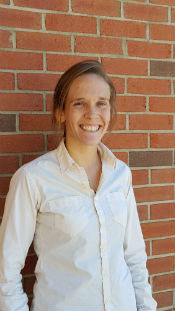 Lucianne Junker
Lucianne Junker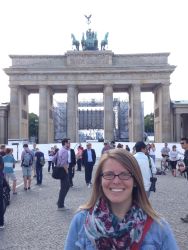 Jillian Lykens
Jillian Lykens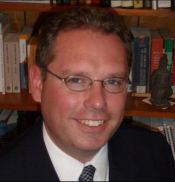 Ben McMaine
Ben McMaine Jordan Sharpe
Jordan Sharpe